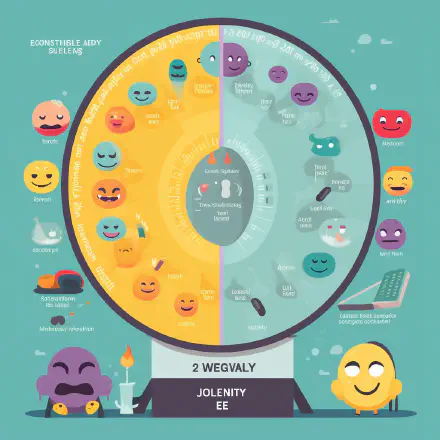
Emotion regulation is the process of managing and controlling our emotions. It involves recognizing our feelings, understanding their underlying causes, and taking appropriate measures to regulate them. Emotion regulation is an essential aspect of emotional intelligence and plays a significant role in achieving emotional balance.
Emotional Balance
Emotional balance refers to our ability to maintain a state of emotional equilibrium. Emotional balance is essential for our well-being as it helps us build resilience, manage stress, and improve our overall mental health. Emotional balance is not about avoiding negative emotions such as sadness, anger, or frustration, but rather how we manage these emotions effectively.
The Consequences of Poor Emotion Regulation
When we fail to regulate our emotions, we experience a range of negative consequences. Poor emotion regulation can lead to increased stress, anxiety, and depression. Research has shown that individuals with poor emotion regulation also experience greater difficulty in maintaining healthy relationships and fulfilling successful careers.
The Benefits of Emotion Regulation
On the other hand, mastering emotion regulation has several benefits, including:
Improved Mental Health
Studies have found that individuals who practice emotion regulation techniques experience reduced symptoms of anxiety and depression. Emotion regulation empowers individuals to manage their emotions effectively, thereby controlling negative thinking and negative behaviors.
Enhanced Resilience
Emotion regulation also goes a long way in promoting resilience. Resilient individuals are better able to bounce back from setbacks, maintain a positive outlook despite adversity, and overcome challenges. Emotion regulation helps individuals handle stressors in a positive manner, leading to increased resilience.
Better Interpersonal Relationships
Effective emotion regulation also fosters healthier relationships. Individuals who can regulate their emotions well are better able to empathize with others, express themselves clearly, and resolve conflicts in a positive manner. They can also establish and maintain healthy boundaries, leading to better communication and understanding between people.
Conclusion
In conclusion, emotion regulation is a vital skill that helps individuals achieve emotional balance. It enables individuals to maintain mental and emotional well-being, fosters resilience, and promotes healthy relationships. As such, practicing emotion regulation techniques is essential for achieving optimal emotional balance and overall well-being.



